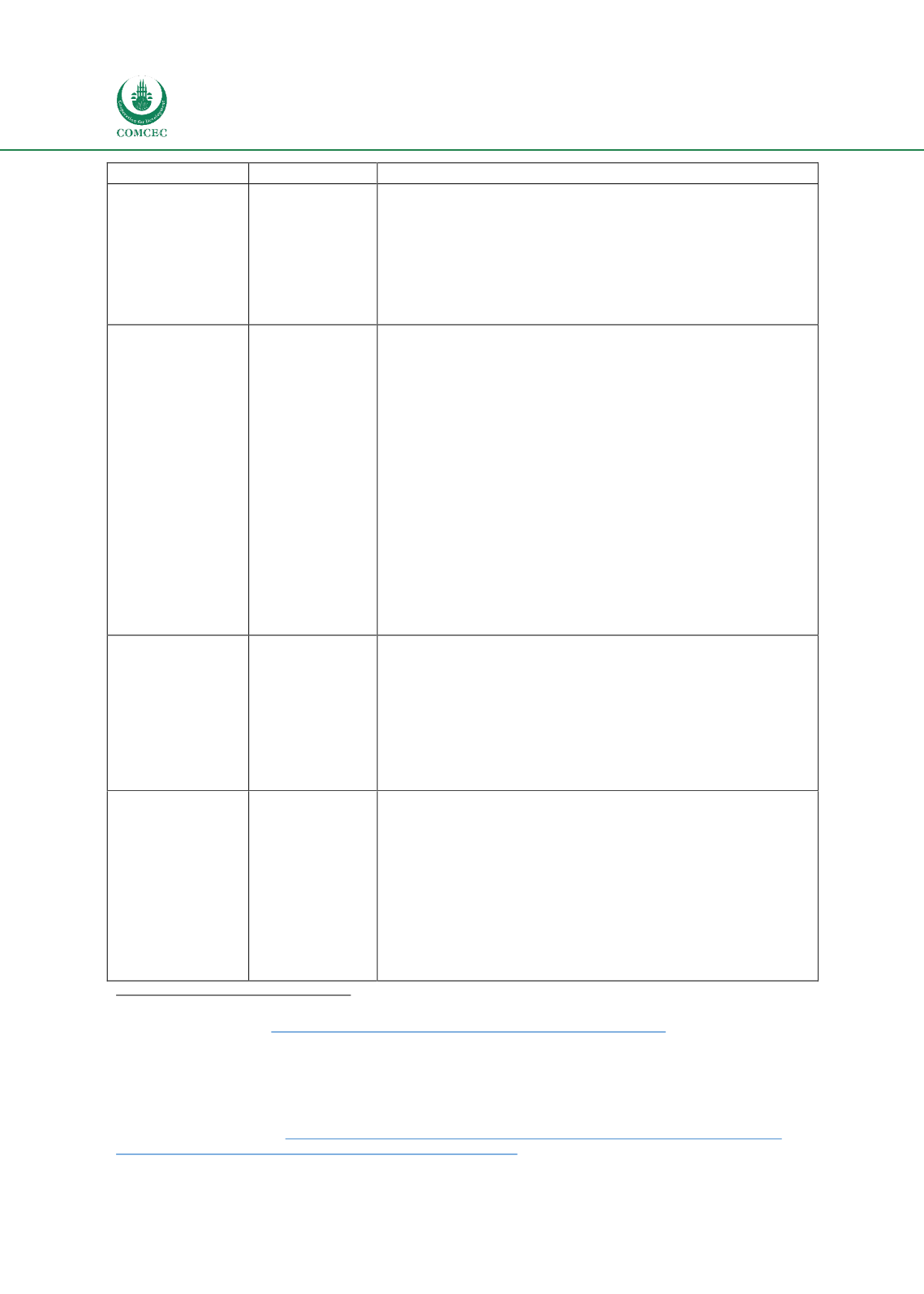

Improving Agricultural Market Performance
:
Creation and Development of Market Institutions
104
Classification
Institution
Description
of Industry, Ministry of Commerce, and Ministry of Finance. UTAP
has three key functions:
Protecting farmers and their interests through monitoring
imports, cost of production, exports, and market channels.
Promotion of the agricultural sector, together with FIPA
and CEPEX.
Intervening in the market through the Inter-Professional
Agricultural Associations.
Commodity
Market
Regulation
Authority
Inter-Professional
Agricultural
Associations
Inter-Professional Agricultural Associations connect different
market participants in local value chains through information on
their existing structure, legislation, and programs.
191
Such groups
exist for wine growers and fruit producers (GOVPF), fisheries
(GIPP), milk producers and read meat (GIVLAIT), aviculture (GIPA),
vegetable growers (GIL), fruit growers (Gfruit)
192
and agro-
industry (GICA).
193
All associations are under the supervision of the
Ministry of Agriculture except for GICA, which is under the
umbrella of the Ministry of Industry.
These associations– together with the private sector and with
UTAP - intervene in product group markets in order to balance
supply and demand of the market, guarantee reasonable prices for
the farmers, and ensure regulatory stock (i.e. control and location
of stock per governorate). In that sense, the associations function
as public storage bodies, which buy up additional supply or sell
stock in case of a surplus of market supply or demand,
respectively.
194
State-Owned
Economic
Enterprise
Tunisian
Company
of
Wholesale
Markets
The Tunisian Company of Wholesale Markets (SOTUMAG) is a
public limited company created under the supervision of the
Ministry of Commerce and Crafts in 1980, responsible for managing
Tunisia’s largest wholesale market, Bir El Kassaa.
195
Bir El Kassaa
functions as Tunisia’s Market of National Interest (MIN), where
Tunisia’s circuits of agri-food distribution are consolidated and
unified through monitoring and regulatory enforcement
mechanisms. SOTUMAG’s mandate also concerns diffusion of the
standard for prices of products.
Commodity
Market
Regulation
Authority
National
Observatory
of
Supply and Prices
Tunisia’s National Observatory of Supply and Prices (ONAP)
complements SOTUMAG in that it’s responsibility covers all of
Tunisia as well as most high-demand commodities. ONAP’s
mandate concerns collecting, monitoring, and disseminating
statistical data and commercial information on the various market
channels (e.g. production, handling, processing, distribution, and
consumption) of Tunisia’s agricultural market system and for a
wide range of strategic commodities. Agricultural market
participants are required to submit requested information to ONAP
agents, who subsequently process and handle the information. This
enables ONAP to produce predictions of supply and demand and
191
European Commission DG Enterprise and Industry (2013), Business Opportunities in the Mediterranean – focus on agri-
food in Tunisia, available a
t http://www.taasti.org/business-opptunities-in-the-mediterranean.pdf [Accessed May 2017].
192
Université de Tunis El-Manar (2009), Liste des Organismes et Entreprises, Tunis : Faculté des Sciences de Tunis –
Département de Géologie.
193
Interview conducted with Union Tunisienne de l'Agriculture et de la Pêche in Tunis, May 16, 2017
194
African Development Bank (2012),
Economic Brief - Distortions to Agricultural Policy Incentives in Tunisia: A Preliminary
Analysis
, pp. 5-11, Tunis: African Development Bank.
195
Nawaat (2015), Food Markets in Tunisia: State Institutions and Controls for Distribution Circuits of Agricultural and
Seafood Products, available a
t https://nawaat.org/portail/2015/05/10/food-markets-in-tunisia-state-institutions-and- controls-for-distribution-circuits-of-agricultural-and-seafood-products/ [Accessed May 2017].


















